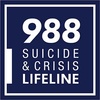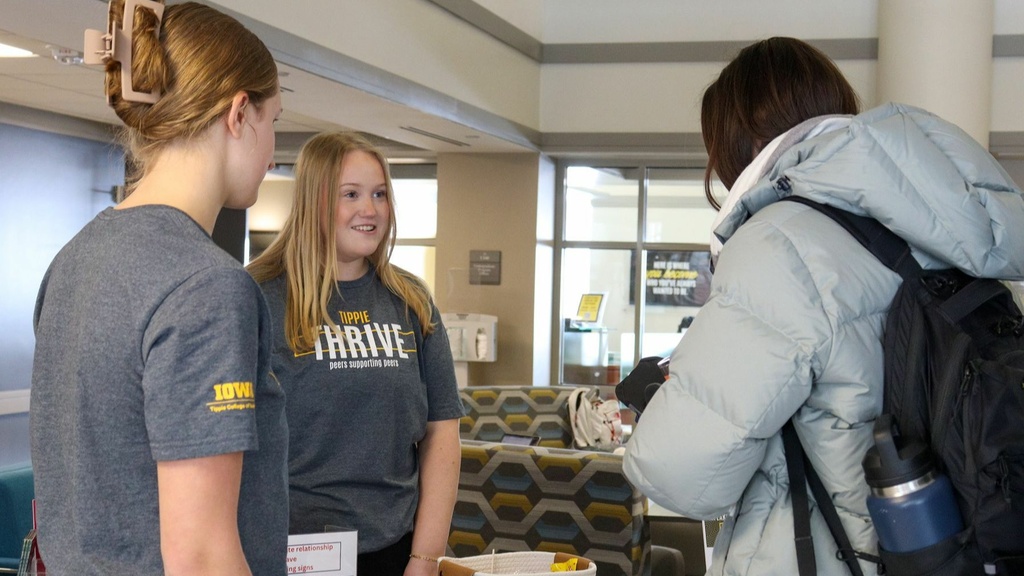Main navigation
University Counseling Service at Tippie
The Tippie College of Business prioritizes students' emotional and mental health by working to build emotional resilience in students to manage stressors experienced during college and prepare for careers. Seventy-one percent of TCOB students report medium to very high levels of stress.
Check out these Health & Wellness Workshops as well as student resources for Physical and Emotional/Mental Wellness.
Get help now

If you are experiencing an emergency or crisis, call 911 or contact:
UI Support & Crisis Line - We're here for you any time, via chat, phone, or text. In partnership with CommUnity Crisis Services in Iowa City, the University of Iowa provides around-the-clock mental health crisis and support for all students.
988 Suicide & Crisis Lifeline
24/7, free and confidential support for people in distress, prevention and crisis resources.
- GuideLink Center | Adult Mental Health and Substance Use Services: 319-688-8000
- CommUnity: 1-855-581-8111
- UIHC Emergency Treatment Center: 319-356-2233
- UCS at 319-335-7294 between 8:00 a.m. and 5:00 p.m. to request a quick access or same-day appointment.
Mental health services available
Clinical services
- Brief individual therapy - approximately 4-10 individual sessions to focus on specific concerns, goals, and building skills
- Consultation Appointments - collaboration with therapist and client to explore needs and develop goals
- One time appointment to problem solve a specific and present concern
- Case management - assistance with accessing on and off campus resources
- Group Therapy - meet with other clients/students to discuss concerns together with support of a therapist
The UCS website provides more details about clinical eligibility.
Psychoeducation and consultation
- Mental health programming can be tailored to specific concerns and needs. Potential topics include self-care, stress management, managing anxiety and depression, team work, communication, leadership, and accessing University Counseling Services.
Group and support therapy
Each semester a variety of processing and support groups are offered through UCS. Topics range from anxiety, ADHD, interpersonal, eating & body concerns, depression, chronic health, grief, and substance use. For more information on groups visit Group Therapy - University Counseling Service.
Schedule an appointment
Tippie's embedded therapist position is currently open. In the meantime, business students are eligible and encouraged to schedule with the UCS main location until the position is filled.
You can schedule an appointment anytime via the online scheduling portal or call 319-335-7294, Monday-Friday, 8-5.

Wellness Resources
Making progress starts with the right tools. Browse a selection of articles and webinars that offer tips, advice, and actions you can take to start feeling better.

Tippie Thrive
Tippie Thrive is a program that focuses on strategies and programming to improve students' emotional and mental wellness.
Thrive works to decrease stigma related to mental health, provide learning opportunities and support to students' emotional and mental health.
Upcoming wellness events
There are currently no events to display.
